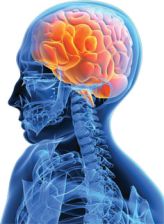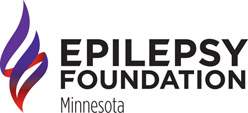What is Epilepsy?

Epilepsy is a medical condition that produces seizures affecting a variety of mental and physical functions. It's also called a seizure disorder. When a person has two or more unprovoked seizures, they are considered to have epilepsy.
A seizure happens when a brief, strong surge of electrical activity affects part or all of the brain.
One in 10 people will have a seizure in their lifetime, and 1 in 26 people will develop epilepsy.
VIDEO: Understanding and Assisting People with Seizures
Prevalence:
An estimated 2.2 million Americans have epilepsy. It affects more than 300,000 under the age of 15. A large number of children and adults have undetected or untreated epilepsy.
A Worldwide Problem:
The World Health Organization estimates there are 65 million people with epilepsy throughout the world.
Incidence:
About 200,000 cases of seizure disorders and epilepsy are diagnosed each year.
Role of heredity:
People with first-degree relatives (parents or siblings) who have epilepsy are at increased risk of developing seizures themselves.
Age of onset:
Epilepsy primarily affects the very young and the very old, although anyone can get epilepsy at any time. Twenty percent of cases develop before the age of five. Fifty percent develop before the age of 25. It is increasingly associated with the elderly, and there are as many cases of epilepsy in those 60 years of age and older as in children 10 years of age and under.
Causes:
In about 70% of cases there is no known cause. Of the remaining 30%, the following are the most frequent causes: What are the different types of seizures?
Cause 1
Brain tumor and/or stroke.
Cause 2
Head trauma, especially from automobile accidents, gunshot wounds, sports accidents, and falls and blows. The more severe the injury, the greater the risk of developing epilepsy.
Cause 3
Poisoning, such as lead poisoning, and substance abuse. For example, more than 5,000 persons each year are reported to suffer seizures caused by alcoholism.
Cause 4
Infection, such as meningitis, viral encephalitis, lupus erythematosus and, less frequently, mumps, measles, diphtheria and others.
Cause 5
Maternal injury, infection or systemic illness that affects the developing brain of the fetus during pregnancy.
Seizure Types
Of the remaining 30%, the following are the most frequent causes: What are the different types of seizures?
- Generalized Tonic Clonic also know as Grand Mal
- Absence also know as petit mal
- Focal Impaired Awareness, also known as complex partial, psychomotor or temporal lobe
- Atonic Seizures also know as drop attacks
- Myoclonic Seizures
- Infantile Spasms
For more information on what different types of seizures look like and how to respond click here.
Rare Epilepsy Syndromes
Have you or a loved one been diagnosed with a rare epilepsy including: Aicardi Syndrome, CDKL5 Disorder, Dravet Syndrome, Dup15q Syndrome, Hypothalamic Hamartoma, Lennox-Gastaut Syndrome, Ohtahara Syndrome, PCDH19 Female Epilepsy, Phelan-McDermid Syndrome or Tuberous Sclerosis Complex?
You are not alone. Of the 65 Million people living with Epilepsy worldwide, a significant amount has a rare form of epilepsy. More information can be found here.
SUDEP
A death is referred to as SUDEP when a seemingly healthy person with epilepsy dies unexpectedly, and no reason for the death can be found. For more information, click here.
What are NEEs or (non-epileptic events), psychogenic seizures?
Non-epileptic seizures or events are not related to abnormal electrical activity in the brain. There is a wide range of reasons they may occur including psychological, due to other medical conditions, or because the person is trying to communicate something. However, they are real events no matter what is causing them. In order to have a good understanding of why they are occurring the individual's medical team needs to be involved and medical evaluation is required to diagnose. There is a lot that is unknown about the condition. It is also possible to have both epileptic and non-epileptic seizures or events.
They can also be referred to as psychogenic seizures, pseudoseizures, cryptogenic or non-epileptic attack disorder.
For more information on NEEs click here.
